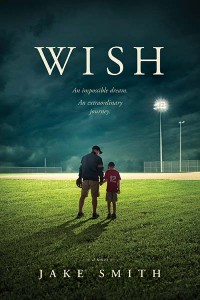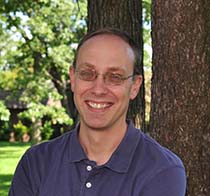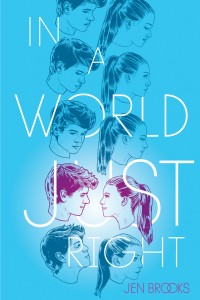Meet Jake Smith
I’ve met a lot of people on this publishing road, and Jake Smith is one of the classiest. His novel, Wish, was released in May ofthis year from Tyndale House Publishers, and it tugs just as many heartstrings as you would think from this description:
 James McConnells one wish is that his nine-year-old son will finally be healthy enough to play a game of catch. Then he and his wife, Emily, receive news theyve dreaded: Aarons cancer has relapsed. As the family steels themselves for a draining treatment regimen in yet another hospital, Aaron receives the gift of a lifetimea personal visit from one of his favorite professional baseball playersand the chance to make a bold request, his wish: to see his dad play in one major leaguegame. A former college standout, James fears he doesnt have the talent it takes, even for one game, and that hell miss what could be Aarons precious last weeks. Yet how can he refuse his dying sons wish? Poignant and triumphant, Wish is the story of a fathers love, a familys perseverance, and the miracles that can happen when you believe in the impossible.
James McConnells one wish is that his nine-year-old son will finally be healthy enough to play a game of catch. Then he and his wife, Emily, receive news theyve dreaded: Aarons cancer has relapsed. As the family steels themselves for a draining treatment regimen in yet another hospital, Aaron receives the gift of a lifetimea personal visit from one of his favorite professional baseball playersand the chance to make a bold request, his wish: to see his dad play in one major leaguegame. A former college standout, James fears he doesnt have the talent it takes, even for one game, and that hell miss what could be Aarons precious last weeks. Yet how can he refuse his dying sons wish? Poignant and triumphant, Wish is the story of a fathers love, a familys perseverance, and the miracles that can happen when you believe in the impossible.
Because I love this book so much, I asked Jake if he’d answer a few questions, and he obliged:
Talk a bit about the genesis of Wish.
The image for Wish a young father, standing alone in the middle of a Major League Baseball field, under the lights, the crowd going crazy, and hes wondering how in the world he got there came out of necessity. Id just tallied my hundred-and-something rejection for a YA science fiction novel I was querying, when I said out loud, All right, I get it Im not supposed to work on this one. So what else should I write about? That image flashed in my head.
At about the same time, we were watching a Detroit Tigers baseball game, and one of our favorite players hit a home run; and as hes rounding the bases, the announcers begin talking about a little boy that player had visited in the hospital earlier in the day. Thats when the idea of this unbelieveable experience this father has, of playing in one MLB game, comes about because of a wish from his ill son.
What kind of research did you do in order to write Wish?
Im a baseball nut to begin with, playing a lot in high school and helping as an assistant coach at my alma mater a handful of years ago. I talked with some former Major Leaguers (including the player who hit that home run I mentioned before), and had another former player and current ESPN baseball analyst, Doug Glanville, review the manuscript. On the medical side, I had several chats with pediatric oncologists, hospital administrators, and families who have fought childhood leukemia with their children, all so very powerful. Tours of a couple of childrens hospitals and the behind the scenes of Comerica Park (home of the Detroit Tigers) and another Minor League Baseball park provided a dose of realism that proved invaluable.
You’ve been described as a man who writes “fiction with a mission.” What does that mean? What is the “mission” for Wish?
Wish is more than just a story. As soon as I thought of the ill child, I thought, Well, if this works, we could use it to do some good. Which is exactly what weve been able to do, donating a large chunk of proceeds to childrens hospitals around Michigan, and inspiring people to join the bone marrow registry at www.BeTheMatch.org. My kids are, thankfully, healthy, so I feel Ive been called to use whatever gifts I might have telling a story to do as much good as possible. Its been one of the most unbelievable experiences of my life to receive letters from readers who tell me that as soon as they finished reading Wish, they signed up on the registry. The only thing that could eclipse that is if someone actually matched a person in need and went on to save their life. Ive been on the registry for nearly 15 years, and Ive never been called to donate; what a wonderful feeling that must be!
Describe your path to publication. What has been your greatest challenge? Greatest triumph?
Wish tallied 55 rejections before finding an agent and to do that, it took a friend-of-a-friend referral to an agent, an agent whose call I screened when he called the house that night! (Its true; I thought he was a telemarketer.) From three years of writing letters and receiving Sorry, not for us letters, to a whirlwind 24 hours, and I had an agent. After two lengthy revisions, it went out to publishers, and we received an offer. It was a little more than three months from signing with my agent to receiving an offer from Tyndale House Publishers.
Greatest challenge: the second revision, in which I had to try to fix my bad writing habit of using too many passive words (in the end, I feel it made me a better writer).
Greatest triumph(s): opening the box of hardcovers and seeing my name, writing donation checks to hospitals, and getting that first letter saying that someone signed up on the bone marrow registry because of Wish.
What are some books that have had an influence on you? or What are some of your favorite books/authors?
I wish I could give you the name of an obscure writer so that people would run to the bookstore to search for it, but in truth, The Hobbit and Lord of the Rings probably had the biggest influence on me for one reason: they sparked my imagination. Ive always felt that imagination is one of the most important thing youngsters especially teenagers can develop, because imagination leads to ambition, which leads to perseverance. Thats why Im so thrilled about the amazing world of Young Adult literature these days so many fabulous stories and storytellers (like you!) for kids to absolutely lose themselves in.
Authors Dan Walsh, Jason F. Wright, and Kevin Milne (all in my genre of inspiring, family- and faith-based fiction; and all gracious enough to provide cover blurbs for Wish) have been great sources of inspiration. And Im a fan of Doug Stanton as well, and his ability to treat a non-fiction event (war stories) with a novel-esque style. The way he applies his research is incredible.
What advice would you give to other writers?
Develop a process for editing. Its tough to like your story during the editing phase, but if you compartmentalize your editing take different aspects of the story in different phases the process can go a little smoother. I do a chapter edit as soon as Im done writing a chapter; then when the manuscript is done, I do a content edit; a mechanical edit (grammar, punctuation, etc.); a bad-writing habit edit (see above); an out loud edit (reading the book out loud, great for identifying run-on sentences, missing or repetitive or improper words, and for dialogue); and then one more story edit.
What ritual/charm/beverage do you require in order to sit down and write?
I have a fountain pen my dad gave me as a college graduation present, saying, From one writer to another. (Hes a well-known outdoor book and magazine author and editor.) I confess that I never really felt like I could call myself a writer until I sold a piece of my fiction. I used that pen to sign the publishing contract for Wish. So I sort of hold that pen and say a prayer for an open mind and a vivid imagination. And I listen to a lot of movie soundtracks.
You are working on a new novel project now. Can you tell us a little about it?
Its another fiction with a mission book, this one revolving around high school basketball, dogs, and the military. Some of my research has been pretty emotional so far. Im only a few chapters into it, and its a bit more difficult to write. With Wish, I didnt have any expectations or timelines; now, I feel all of these things looking over my shoulder!
Thank you, Jake! I loved Wish and look forward to reading your next book!
 Jake Smith is an author and magazine editor who lives in Traverse City, Michigan, with his wife, Vickie, their three children, and a Labrador retriever. A former assistant high school baseball coach and All-State shortstop, Jake now spends his time on the field helping coach his kids youth baseball teams.Wish is Jakes debut novel, and he hopes it will help support childrens hospitals, patient and family foundations, and participation in the National Marrow Donor Program.
Jake Smith is an author and magazine editor who lives in Traverse City, Michigan, with his wife, Vickie, their three children, and a Labrador retriever. A former assistant high school baseball coach and All-State shortstop, Jake now spends his time on the field helping coach his kids youth baseball teams.Wish is Jakes debut novel, and he hopes it will help support childrens hospitals, patient and family foundations, and participation in the National Marrow Donor Program.
Find Jake on his website, Facebook, Twitter.
Find Wishon Amazon.
